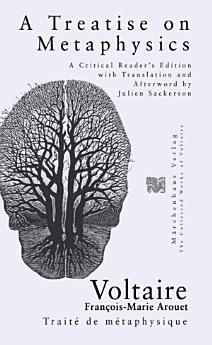Treatise on Metaphysics
Rreth këtij libri elektronik
This modern Critical Reader’s Edition includes an illuminating afterword tracing Voltaire’s intellectual relationships with Enlightenment thinkers and philosophers (including Locke, Diderot, Rousseau and Newton), containing unique research into his influences and economic attachments, a comprehensive timeline of his life and works, a glossary of Enlightenment terminology, and a detailed index of all of Voltaire’s writings. This unique professional translation renders Voltaire’s sharp, satirical prose into modern language to preserve the original clarity and movement of the text. Combined with the scholarly amplifying material, this edition is a groundbreaking exploration of Voltaire’s classic works and his enduring artistic and philosophical influence, and influence on modern Protestant-Atheistic Theology.
Although the Traité de métaphysique was written in 1734, it remained unpublished for centuries, circulating only in manuscript among a few friends. It was not printed during Voltaire’s lifetime (indeed, he set it aside unfinished), so it had virtually no immediate impact on 18th-century readers. It was later recovered and published by editors of Voltaire’s complete works in the 19th and 20th centuries. What little evidence there is suggests Voltaire stopped work on it around 1737, turning instead to lighter subjects. Thus its historical context is as an internal, private project: Voltaire was processing what he had learned during his years in England and refining his thoughts on freedom and ethics. The text reflects the aftermath of the letters scandal: it is a more technical, cautious treatment of themes (materialism, providence) that he had touched upon controversially. One modern scholar notes that writing this treatise alongside his social activism indicates how Voltaire’s commitment to liberty was entwined with deeper philosophical inquiry. In sum, this work belongs to Voltaire’s younger, exploratory phase, rather than to his public career as a polemicist.











